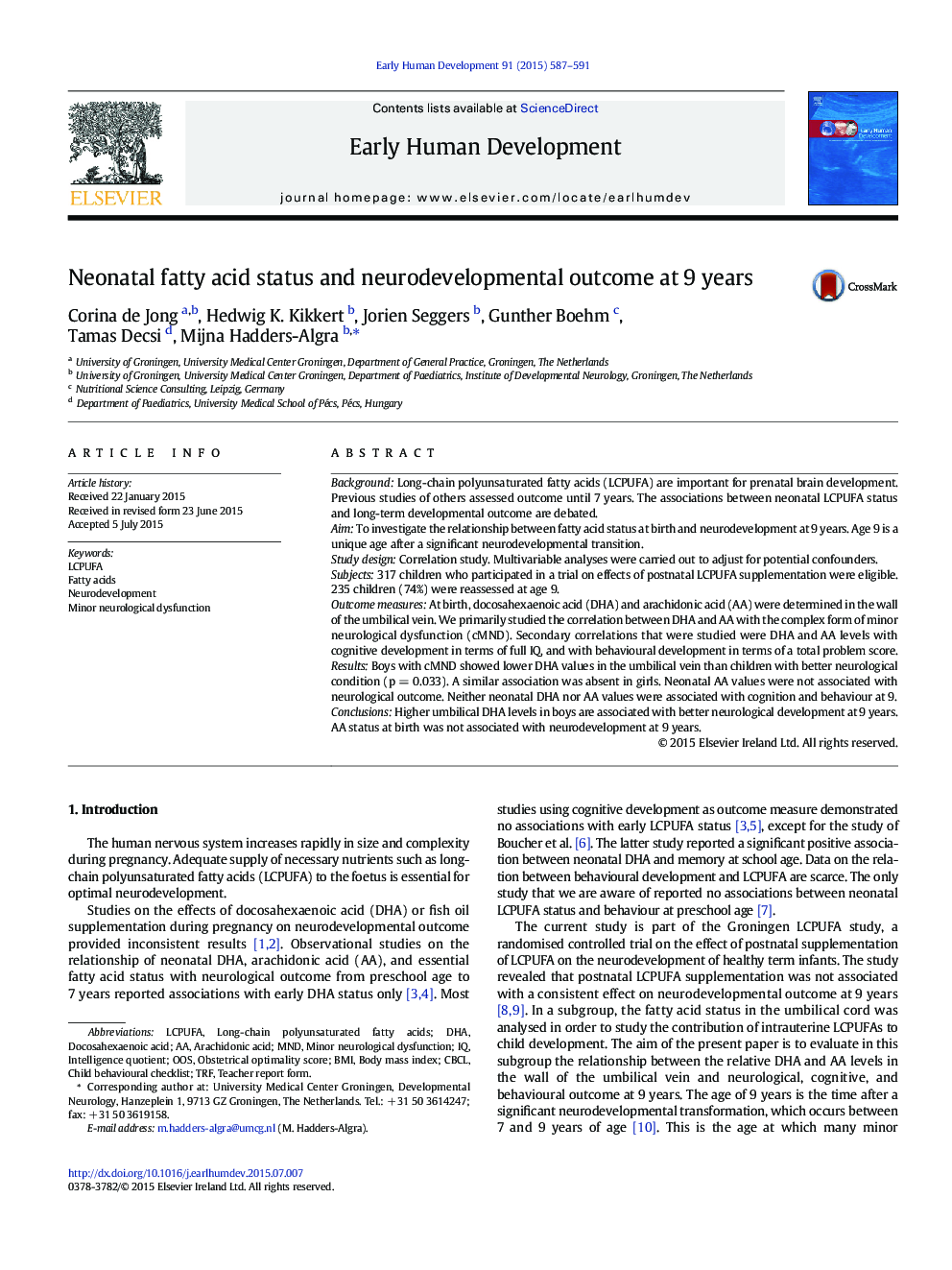| Article ID | Journal | Published Year | Pages | File Type |
|---|---|---|---|---|
| 3917736 | Early Human Development | 2015 | 5 Pages |
•Umbilical DHA levels in boys are associated with better neurological development at 9 years.•Umbilical DHA levels are not associated with cognition or behaviour at 9.•Umbilical AA levels are not associated with neurodevelopment at 9.•Prenatal DHA has a larger impact on development than DHA in infant formula.
BackgroundLong-chain polyunsaturated fatty acids (LCPUFA) are important for prenatal brain development. Previous studies of others assessed outcome until 7 years. The associations between neonatal LCPUFA status and long-term developmental outcome are debated.AimTo investigate the relationship between fatty acid status at birth and neurodevelopment at 9 years. Age 9 is a unique age after a significant neurodevelopmental transition.Study designCorrelation study. Multivariable analyses were carried out to adjust for potential confounders.Subjects317 children who participated in a trial on effects of postnatal LCPUFA supplementation were eligible. 235 children (74%) were reassessed at age 9.Outcome measuresAt birth, docosahexaenoic acid (DHA) and arachidonic acid (AA) were determined in the wall of the umbilical vein. We primarily studied the correlation between DHA and AA with the complex form of minor neurological dysfunction (cMND). Secondary correlations that were studied were DHA and AA levels with cognitive development in terms of full IQ, and with behavioural development in terms of a total problem score.ResultsBoys with cMND showed lower DHA values in the umbilical vein than children with better neurological condition (p = 0.033). A similar association was absent in girls. Neonatal AA values were not associated with neurological outcome. Neither neonatal DHA nor AA values were associated with cognition and behaviour at 9.ConclusionsHigher umbilical DHA levels in boys are associated with better neurological development at 9 years. AA status at birth was not associated with neurodevelopment at 9 years.
